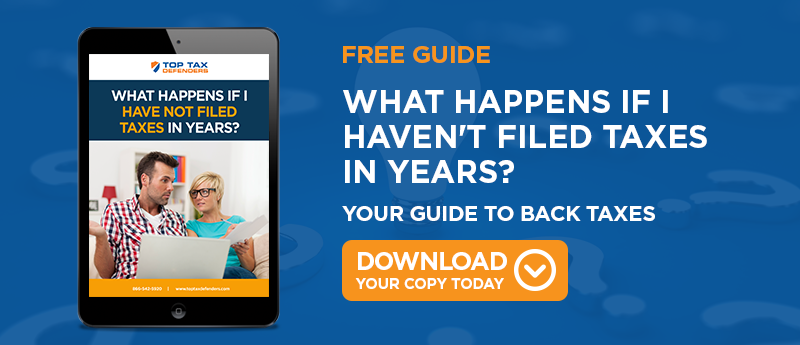
There are several reasons people decide to file for bankruptcy, but how does that impact your taxes? Let’s find out.
Carl G. Archer, a bankruptcy lawyer with Maselli Warren, P.C.,explains bankruptcy like this: " The concept of bankruptcy is that you, as a debtor, surrender your right to handle your own affairs. A trustee is appointed to oversee them. Your affairs become part of an 'estate,' the same they would be if you were incapacitated or if you had died. The trustee's sole responsibility is to pay creditors with any assets that aren't exempt under federal or state law, whichever is applicable."
That means you don’t get to make any decisions about your financial affairs, even though you are alive and well. However, you still gotta file your taxes. In fact, you have to file two types of tax forms, not just one, for the current year. More work!
You must file your own individual taxes using Form 1040, and you have to file taxes for your bankruptcy estate. However, the trustee actually does the filing using Form 1041. But where do you go from there?
Discharging Your Tax Debt
You decide whether to file bankruptcy by learning how it impacts your particular circumstances and tax situation. Your decision determines when you can discharge tax debt, what happens to federal liens on your property, and how to manage your debt (at least if you file for Chapter 13 bankruptcy).
Unfortunately, not all tax debts can be discharged by bankruptcy, and each of the many chapters of bankruptcy treats tax debts differently.
Chapter 7 Bankruptcy
In Chapter 7 bankruptcy, the only taxes you can discharge are income taxes. You cannot eliminate payroll taxes or fraud penalties. Also, you cannot have committed fraud or willful tax evasion by filing a fraudulent return, such as using someone else’s social security number.
Your debt must be at least three years old. It must be toddler debt, not newborn debt. You count the time from the original tax due date.
You have to file a tax return for most, but not all, courts, including the return for the debt you want to discharge. You need to do this at least two years before you file for bankruptcy. Late returns DO NOT COUNT. If the extension has expired, if the IRS filed a substitute tax return for you, you are out of luck discharging taxes through Chapter 7 bankruptcy.
One more thing: You must pass the 240-day rule. The IRS must have assessed the income tax debt at least 240 days before you file your bankruptcy petition unless you were not assessed any income tax liability.
Individuals, businesses, corporations, and partnerships can file Chapter 7, and the entire purpose is to liquidate your assets. The trustee takes them, sells them, and pays your creditors. It can take 90 to 120 days. Any taxes you owe before you file bankruptcy must be filed for the past four tax periods.
Then the IRS dismisses or discharges your tax debt. Any taxes you owe after you file for bankruptcy must be filed on time and paid in full. There is no discharge of liability, overpayments may be offset to other tax debts, or the bankruptcy trustee may receive them.
Chapter 11 Bankruptcy
Individuals and corporations can file Chapter 11 Bankruptcy. This type of bankruptcy allows you to reorganize your debt and your business, allowing you to pay reduced amounts to creditors while staying in business. However, you also liquidate.
Chapter 11 bankruptcy can take up to five years. Pre-petition taxes (those owed before the bankruptcy filing) and post-petition taxes (filed after a bankruptcy filing) are treated the same as Chapter 7 except for discharge. Businesses with employees cannot eliminate unpaid employee Social Security and income tax withholdings.
Chapter 12 Bankruptcy
Chapter 12 bankruptcy is for family farming or fishing operations. It allows you to adjust debts, and the trustee makes payments to creditors in accordance with seasonal income.
Chapter 12 can take five years but may be shorted to three if there is a hardship. Pre-petition and post-petition taxes are treated the same way as in Chapter 11 bankruptcy.
Chapter 13 Bankruptcy
Most people have heard of Chapter 13 bankruptcy. Individuals and sole proprietors can file, and the purpose is to adjust debts. The trustee distributes debtor payments to your creditors.
It can take five years, three if you can prove hardship. As far as pre-petition taxes, you must file returns for the past four tax periods. Dismissal and discharge are the same as with Chapter 7 bankruptcy.
By the way, bankruptcy law has one provision you must follow. You cannot acquire any new delinquent balances while you are under court supervision. You can still acquire new debt, but it won’t be protected under the bankruptcy filing because it wasn’t disclosed. (You can’t disclose or divine the future.)
Any taxes may be defined as new debt if you are unable to pay them, and it could force the court to dismiss or convert the current bankruptcy to a different chapter than the initial filing.
What About Federal Liens?
Sorry, Charlie. You cannot eliminate or discharge federal tax liens under bankruptcy. Let us say that again — if the IRS already filed a lien on your property before you petitioned for bankruptcy, you cannot remove or discharge it.
You are still required to pay off the tax lien before selling the property and transferring the title to the new owner. Depending on the jurisdiction, you may have additional requirements.
What To Do If You File for Bankruptcy
The first thing to do when filing bankruptcy is to get a lawyer. Tell that lawyer whether you have filed a return for each of the past three years, too. If you haven't yet filed for the current year, consider doing it before filing for bankruptcy so any tax debt can be discharged or dismissed unless you believe you will receive a substantial refund.
Get your new lawyer friend all your tax records and a general explanation of how you used any refund money. The trustee will always ask. If you get a refund and are considering bankruptcy, do not pay bills with it because it will slow down your bankruptcy process.
After all this, file your taxes on time every year because the IRS assesses separate penalties for failure to file as opposed to failure to pay. The agency will find out if you owe them money, even if you don’t file, so you may as well keep from accruing unnecessary penalties.
Top Tax Defenders can help if you are considering bankruptcy. We have all the resources you could wish for to develop your strategy and get ready for your filing.




